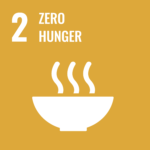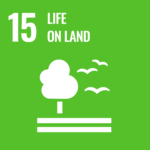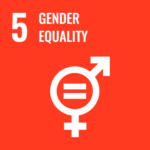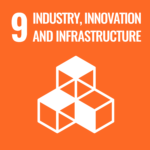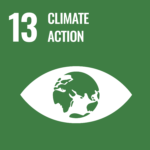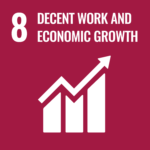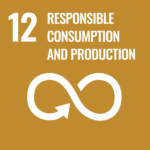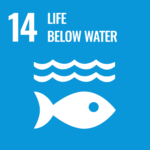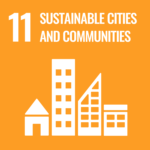ALPHAFOOD

Breeding insects in an environmentally friendly way to produce flour and derivatives, offering viable protein food alternatives and producing soil improvers to help safeguard crops.

The steady increase in world population will lead to a significant increase in the demand for food in the near future.
Food production will have to increase by 70% by 2050.
OUR GOAL
The production of alternative proteins from crickets

INNOVATIVE BREEDING SYSTEM
ALPHAFOOD
After more than 5 years of university studies and research, we have conceived, designed and subsequently tested our specially created housing system for the Acheta Domesticus species.
A team of experts consisting of agro-zootechnicians, zoonologists and engineers created CBS, an acronym for Cricket Stabulation Box, the innovative housing system:
It consists of a completely stainless steel box inside which a specially designed structure is inserted to ensure maximum production efficiency while respecting the ethological characteristics of the species.
Designed and built in compliance with animal welfare, hygiene and food safety standards. The composition and subdivision of the parts of the box, in fact, guarantees efficient sanitisation, a necessary action to guarantee high food safety standards.
Handling within CSB is reduced to a minimum thanks to the control systems built into each box and the automation of almost the entire process. These procedures are essential to prevent possible cross-contamination.
LESS WASTES





WHY CRICKETS?
ALPHAFOOD
One of the most surprising aspects, as a food source, is their high protein content. At around 70% protein, they outnumber both meat and soya by about three times. This makes them an ideal choice for those looking for a sustainable protein alternative with an essential amino acid content that makes them a complete and high-quality source of protein. But it is not only the amount of protein that distinguishes insects as a viable food alternative. In fact, they can be described as a real ‘nutrient treasure trove’ rich in vitamins and minerals essential for human well-being.


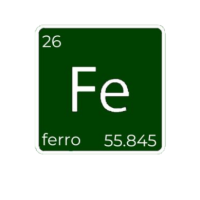

PRODUCTION
Our production process combines advanced technology and craftsmanship to ensure the highest quality and food safety.
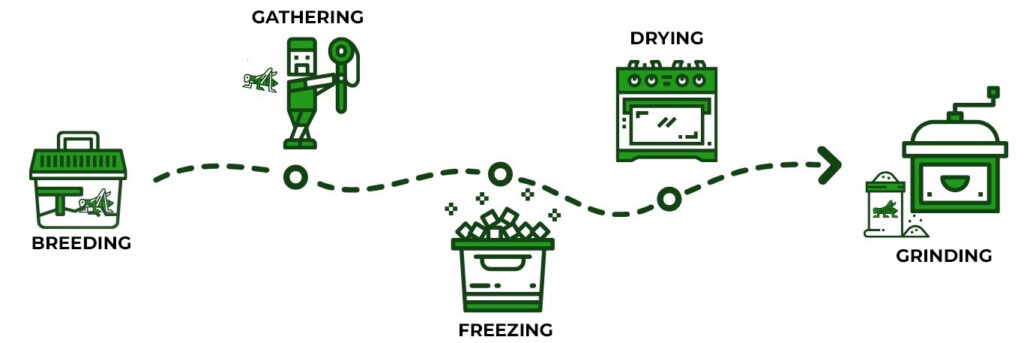
Thanks to this rigorous and controlled process:

Our commitment to the combination of innovative technology and craftsmanship allows us to offer products that combine sustainability and quality.
AREAS OF APPLICATION
ALPHAFOOD
TEAM

Marcello Reale
CEO

Luigi Parisi
CFO

Paolo Mantione
COO

Davide Carloni
CTO
UNITED NATIONS GOALS
Over the past decades, the world has embraced the importance of sustainable development as one of the fundamental pillars to ensure a better future for our planet as well as for future generations.
In 2015, the United Nations, building on this spirit, adopted 17 Sustainable Development Goals (SDGs) to address the most pressing global challenges. We firmly believe in the principles of sustainable development, and we are convinced that we can contribute through our work and expertise to the achievement of various goals through an alternative that is as new as it is promising: cricket farming.
Specifically, it touches on a number of important targets:
We are promoters of a different food culture, and we want to commit ourselves to publicizing and further demonstrating the benefits and possible applications of these farms and the products obtained, in order to make the consumer informed and free to choose.
Alphafood promotes a supply chain in which the watchword is sustainable development. We are convinced that thanks to the team’s multidisciplinary expertise, we can contribute to generating value for the Italian agri-food system in a sustainable manner, differentiating ourselves once again for quality, safety and innovation in the agri-food sector.
ALPHAFOOD
WORK WITH US
You can become part of the ALPHAFOOD team. We will evaluate proposals and contact you for an interview.
SEND US YOUR CV: alphafood.srl@gmail.com
CONTACT US
- XV Strada zona industriale Catania (CT) - 95121
- alphafood.srl@gmail.com / alphafood@pec.it
- +39 320 2846760
- P.IVA: 06006420878

